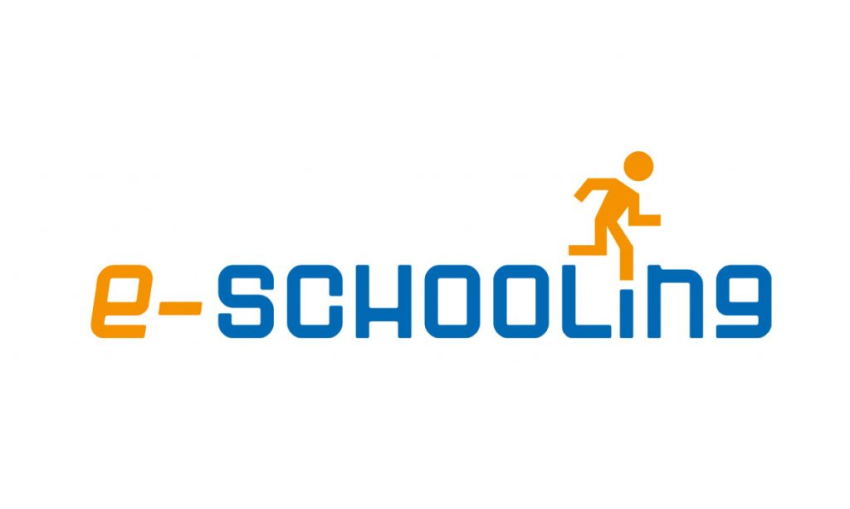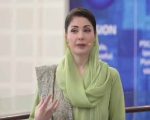Being the foundation of a society, education holds the key to success for both the society and the individual. The prime reason for the fast-widening gulf between developed and developing countries is opportunities to seek quality education where access to schools, the standard and methodology of teaching pose unimaginable challenges.
Failure in educating the youth is a result of orthodoxy, lack of awareness and misplaced priorities. Pakistan and other countries have unfathomable potential but their education system hasn’t been able to put them on the right track.
The penetration of Internet has heralded different social and political dynamics. While the advanced nations have been reaping benefits, developing countries grapple with adverse impacts. Much remains to be desired from the utility of the Internet in countries like Pakistan.
Online schools build the entire learning experience around the student. Teachers, learning coaches and curricula all are made available through internet. Live classes are held regularly and play back option is available in case of missing the class. Teachers reach out to the students through phone calls or emails to facilitate the process as well as to keep them on track. Personalized learning plans are created to support the kid’s learning style, ability and needs. Dynamic multimedia tools and interactive methodology brings learning to life. Independent work is balanced with virtual live sessions to provide an interactive classroom experience.
Examinations in online schools are conducted on the given center. Weekly or monthly gatherings are planned to socialize the children which include community programs, sports days, theatrical plays, club activities and knowledge competitions.
Above all of the Internet’s benefits, easy and meaningful access to education through the introduction of online schools isn’t an idea out of wonderland. In fact, online schools are far more effective and successful than orthodox education institutions. From a student’s perspective, traditional schools confine the children whereas online schools are flexible as well as easier. Youth have unique learning capability and higher capacity. For instance, some are super-fast and some lag behind. In a classroom, all the students are forced to learn at the same pace notwithstanding their learning abilities and background knowledge. But online schools provide the opportunity for optimal learning for all the students: extraordinary, mediocre and slow.
Home assignments and classwork can be completed at the desired time, which results in thorough learning. Children don’t copy other’s work or complete it in haste. Likewise, computer leaves no room for error assesses most of the work. As the teachers’ most difficult task is to check the homework and classwork and realistically, almost no teacher has ample time to pay exclusive attention to written work as they have hundreds of copies to check in, at best three days, and at worst only the next day.
Live sessions can be played back which leave no chance of missing a class. Hence, students have no fear of lagging behind or becoming a laughing stock, which shatters their confidence. In normal schools, a day off means missing a topic that won’t be taught again, since the teacher has to follow a given plan which never allows them to redeliver the class.
Students enjoy the freedom of learning anywhere: home, hotel, bedroom etc. They don’t have to be restricted in one place to learn. They don’t have to follow a timetable often devised to facilitate the administration, not the learner.
Mornings bring frustration, noise, pollution and unwanted forced beginning of the day in our education system. Students are forced to wear uniforms and carry school bags often heavier than them. All the books and notebooks must be bagged needlessly; otherwise, the consequences can lead to demoralization of the student.
Early mornings are meant to provide serene and conducive atmosphere, but our schooling system makes it otherwise. Students’ journey to school is enough to make them hate the education for they face parents’ yelling at them, abrupt awakening, hastiness, overcrowded school vans, a war for the occupation of a comfortable seat, traffic jams, unhealthy pollution caused by vehicles on road, and extreme weather. On the contrary, mornings are self-organized and pleasant in online schooling. Kids learn how to manage time and make most of it. They aren’t psychologically and physically fatigued.
Minimal psychological and socioeconomic pressure leads to a stress-free life enhancing the learning abilities of a student. Kids’ concentration level is increased, as they don’t compare themselves with their class fellows.
Classrooms are overcrowded in normal schools and this hinders the learning process. Diverting the teacher imparting knowledge as well as defocusing the kids during class is a common practice.
The greatest positivity an online school brings to education is the use of personal opinion and creativity of students. At normal schools, kids are forced to come up with the answer taught by the teacher or memorize the answer in the book. An online education system provides ample time for meditating, researching and analyzing the concept in the absence of any peer or teacher pressure. Consequently, kids become more creative and analytical.
Annie Medosch, an online student comments, “I feel like the online school could get pretty lonely but like couldn’t you go get a job, make some money? Volunteer somewhere for college apps? Go to more social events because you’re freer? I feel like I’d do so much more with an online school.”
The most ignored aspects of traditional schools are physical exercise and healthy activities. Kids are left with ample time to follow their dreams if they have the facility of online schooling. They can play games, participate in social events, learn dancing or music. Precisely, a much better life can be led if we modernize our schooling system.
Parents don’t have to make unnecessary expenses on uniforms and transportation. The same amount can be spent on the child’s health and extracurricular engagement. The ideal level of efficiency can be achieved through online schooling since less traveling results in the least wastage of time and energy.
Another benefit is that online schools will allow parents to rest assured their kids are secure. One concern is the imminent risk of drugs while studying at orthodox schools: in Pakistan, the use of fatal drugs by students at educational institutions has become a concern even debated at the highest forum of legislatures.
Another concern is pedophilia. In a time when child sexual abusers are fearlessly busy hunting our kids, online schooling can make the sense of security prevail among the parents as well as children.
A transition is far better than a sudden unplanned conversion. Eventually, advanced societies will only have these online schools serving the cause in a far better way. Developing countries have failed themselves by not timely realizing the needs; as a result, they have to implement the change haphazardly. Instead of repeating the mistakes, we’d start our journey to the future by introducing online schools.
The contemporary human dependency on technological advancement is evident of internet’s role in future. Use of 3G and 4G enables mankind to live and learn in a global village and not considering the change will only result in failure. UNESCO, Alif Ailan, HDF, SDPI, PIEDAR, Cavish Development Foundation and CDPR can play a pivotal role in facilitating the birth of online schooling in Pakistan.
Government’s role in promoting online schools is of immense significance and inevitable. Establishment of state-run online schools and a regulatory body devising rules and regulations to facilitate learning process as well as examination boards for the provision of education to all the segments of society can start the journey.














